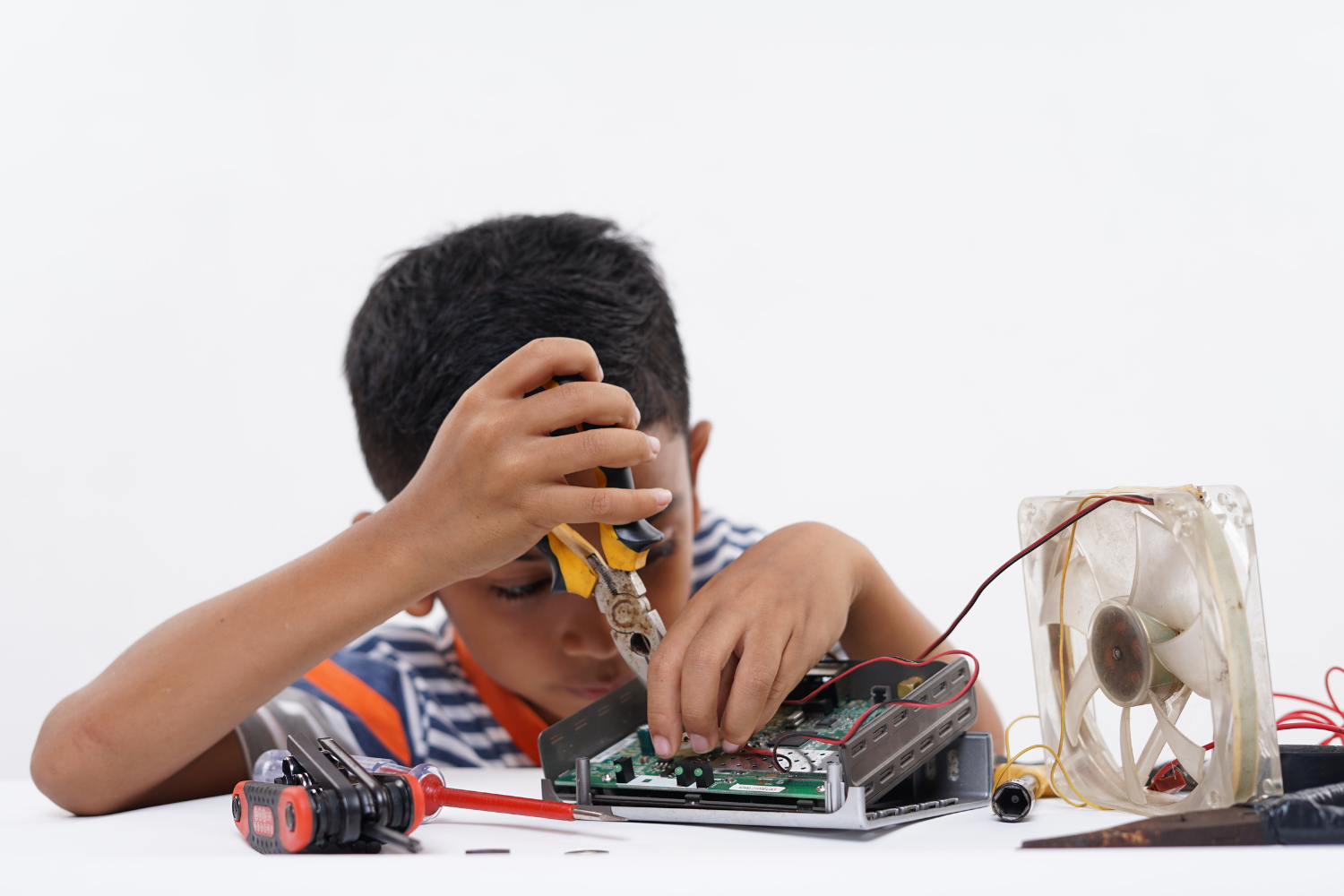No parent would want to raise their child to be less intelligent than he could be.
Yet, every single day, around the world, parents are doing one critical thing that gets in the way of their children’s intellectual development.
Their children are spending way too much time on screens. Whether it’s for educational purposes or simple entertainment, screens are screens.
The Hard Facts
From one study by Hikaru Takeuchi, et al, “Excessive internet use is shown to be cross sectionally associated with lower cognitive functioning and reduced volume of several brain areas.”
According to Common Sense Media’s latest research, 50% of teens report that they feel addicted to their phones while 59% of their parents say the teens are addicted.
That’s a lot of teens who are addicted to their phones.
The younger a child is, the more damaging technology is to the development of his brain. This is a hard fact of science.
Effects on the Growing Brain
Technology use in childhood interferes with the neural connections in the brain, and it is the neural connections that make up our intelligence.
Logic would have it that the less neural connections a brain makes, the less intelligent an individual would become.
We are seeing first-hand the evidence of the numbing effect technology has on children’s minds with a new generation of tech babies who have come of age.
There are so many studies reporting the ill effects of technology on the brains of children.
It cannot be argued otherwise unless you have billions of dollars and spread false propaganda to sell your products like the video game lobby does.
Video games alone pull in 300 billion dollars per year! The industry pays lobbyists to convince congressmen that video games are beneficial.
Inability to Focus and ADHD
We know that technology use interferes with our ability to focus. With so many children playing video games, and so many children diagnosed with ADHD, I wonder how much technology has to do with it?
Maybe instead of medicating our kids, we removed technology from their lives, they might learn to focus better.
So many adults self-label themselves with ADHD when they don’t have ADHD. People say it so often that it’s become a euphemism for a lack of focus.
The hard facts of the matter are that we’re spending too much time online.
True Story
I spoke with a woman once who lost her son to technology. He became addicted as a teenager, and when he finally recovered, she said he was never the same kid.
She didn’t have a strong connection with him like she had with her other children, because the technology had damaged his brain.
It was a heartbreaking story, and one that will be shared with more and more parents until we come to terms with the truth about technology.
We will serve our children best by getting rid of the gadgets. And be willing to deal with the complaints and the anger your kids will probably display for the first few weeks, because eventually, they’ll get over it.
You don’t want to lose your kids to technology, as so many parents have. We now have a plethora of addiction centers for withdrawing from technology because the addiction is real.
And each child with a device is a potential victim.
If you have your kids online for school, drop that too. Homeschooling offline is much easier, more rewarding, and more enjoyable.
May we ditch the brain-draining, mind-numbing screens and provide our children with a more brain-activating, mind-developing experience instead.
Don’t miss our free download, Ten Books Every Well-Educated Child Should Read.
Teach your child to read before sending him to school! Learn more about Elizabeth's unique course, How to Teach Your Child to Read and Raise a Child Who Loves to Read.
For parents of children under age seven who would like to prepare their child for social and academic success, please begin with Elizabeth’s singular online course, Raise Your Child to Thrive in Life and Excel in Learning.
When you join the Smart Homeschooler Academy online course for parents, Elizabeth will make homeschooling manageable for you. She’ll guide you in helping your kids reach their intellectual potential and developing good character.
As a homeschooler, you will feel confident, calm, and motivated knowing you have the tools and support you need to homeschool successfully.
Elizabeth Y. Hanson is a homeschooling thought-leader and the founder of Smart Homeschooler.
As an Educator, Homeschool Emerita, Writer, and Love and Leadership Certified Parenting Coach, Elizabeth has 21+ years of experience working in education.
Developing a comprehensive understanding of how to raise and educate a child, she devotes her time to helping parents get it right.
Elizabeth is available for one-on-one consultations as needed.
"I know Elizabeth Y. Hanson as a remarkably intelligent, highly sensitive woman with a moral nature and deep insight into differences between schooling and education. Elizabeth's mastery of current educational difficulties is a testimony to her comprehensive understanding of the competing worlds of schooling and education. She has a good heart and a good head. What more can I say?”
—John Taylor Gatto Distinguished educator, public speaker, and best-selling author of Dumbing Us Down: The Hidden Curriculum of Compulsory Schooling






























































